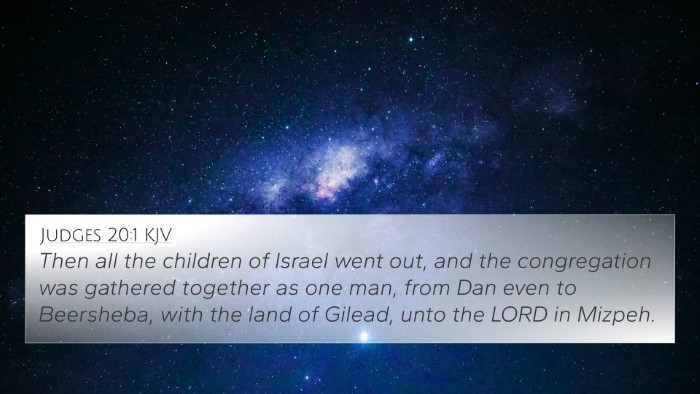Meaning and Interpretation of 2 Samuel 3:10
Verse: "To transfer the kingdom from the house of Saul, and to set up the throne of David over Israel and over Judah, from Dan even to Beer-sheba." (2 Samuel 3:10, KJV)
Overview
This verse captures a pivotal moment in the history of Israel as it marks the transition of power from the house of Saul to David. The implications of this transition are profound for the nation, paving the way for David’s eventual rule over a united Israel.
Commentary Insights
Matthew Henry Commentary
Matthew Henry emphasizes the sovereignty of God in leadership transitions. He points out that this verse illustrates God's plan unfolding in appointing David as king, which highlights the divine right of kings. Henry notes how this moment signifies not just a political shift, but also a spiritual rejuvenation for Israel under David's leadership.
Albert Barnes Commentary
Albert Barnes offers a detailed historical context regarding the political climate of Israel during this time. He notes the significance of David’s rise amidst civil strife and that this transition represents a fulfillment of God’s promise to David. Barnes also highlights the geographical extent of David’s future kingdom, denoting the importance of unity in Israel from north (Dan) to south (Beer-sheba).
Adam Clarke Commentary
Adam Clarke interprets this verse as expressive of both political maneuvering and divine providence. He stresses the role of the people’s acceptance in establishing David’s kingship. Clarke also notes that the reference to the geographical boundaries emphasizes the ideal of a united monarchy and the extent to which David would reign over all of Israel.
Thematic Connections
This verse opens up various themes in Scripture, including themes of leadership, God's sovereignty, and the fulfillment of divine promises. Understanding 2 Samuel 3:10 allows for a rich exploration of these themes by engaging in comparative Bible verse analysis.
Cross-References
- 1 Samuel 16:12-13: The anointing of David as king by Samuel.
- 2 Samuel 5:1-5: The formal recognition of David as king over all Israel.
- Psalm 78:70-72: God choosing David to shepherd His people and guide them wisely.
- Jeremiah 23:5: The promise of a righteous branch from David's line, emphasizing the messianic expectation.
- Luke 1:32-33: The angel's message to Mary about Jesus, who will sit on David's throne forever.
- Matthew 2:6: A prophecy concerning the birthplace of the Messiah in connection to David’s lineage.
- Romans 1:3: Paul’s declaration that Jesus comes from the lineage of David according to the flesh.
Study Methods
Engaging with this passage through tools for Bible cross-referencing can deepen understanding. Consider using resources such as a Bible concordance or a cross-reference Bible study guide, which can enhance your exploration of inter-Biblical dialogue between related passages.
Applications for Today
Understanding God’s control in leadership transitions can offer solace and faith in times of uncertainty. Just as Israel navigated its leadership with David, modern readers can find parallels in their own experiences of change and seeking God’s guidance in leadership.
Conclusion
2 Samuel 3:10 serves as a critical junction in biblical history that signifies God's active role in fulfilling His promises. By examining this verse alongside its cross-references and interpretations, one can gain valuable insights into God's character and the overarching narrative of redemption that flows throughout the Scriptures.







